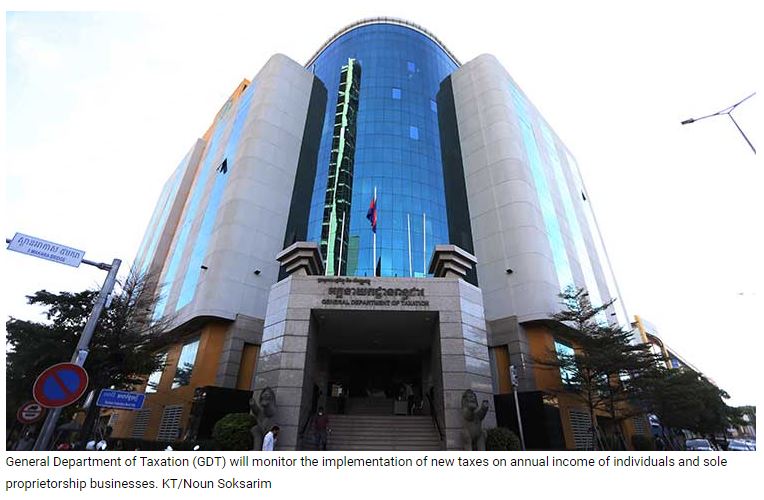Cambodia: Implementation of new income, salary tax come into effect
All organisations and institutions associated with the Royal Government of Cambodia have started implementing the new taxes on the annual income of individuals and sole proprietorship businesses and monthly salaries of resident employees from January 1, 2023, following a new sub-decree issued on September 28, 2022.
Individuals and sole proprietorship enterprises that generate from zero to 18 million riels shall be taxed at zero percent, while those who earn from 18,000,001 riels to 24,000,000 riels shall be taxed at 5 percent and those who earn between 24,000,001 riels and 102,000,000 riels shall be taxed at 10 percent, said the sub-decree.
The sub-decree also states that individuals and sole proprietorship enterprises that earn from 102,000,001 riels to 150,000,000 riels will be taxed at 15 percent and those who generate more than 150,000,000 riels shall be taxed at 20 percent.
Minister in charge of the Council of Ministers, Minister of Economy and Finance, Ministers of the rest of the ministries and chiefs of all institutions shall enforce the sub-decree.
Khun Darith, Managing Partner of accounting and tax solutions at accountancy firm K Professional Accounts (KPA), told Khmer Times yesterday that the new sub-decree increases the threshold to 1,500,001 or $375 from 1,300,001 or $325 that was set in the previous sub-decree, but the tax will be charged on progressive-tax-rate base — a tax on salary portion.
“The sub-decree would be much more useful for especially civil servants, garment workers and employees at other enterprises as it would allow the government to escape charging taxes on low-income people. So, even though they get higher income or salary this year, they would still not be taxed to enable them to cover the rising inflation,” Darith said.
“If the government does not raise the threshold, people who have more income or higher salary would not only be taxed but also need to cover the inflation, which would make their raise of income or salary valueless. So, it is not good for the people. However, the government can generate more tax revenue in large amounts from businesses, large taxpayers and those who work in high positions instead,” he added.
The accounting and tax expert went on to add it is remarkable that there are more low-income and medium-income groups of people than high-income groups in Cambodia, which requires the tax policies need to be consistent with such context in which there could be problematic if the majority have been affected by those policies. “So for me, this is a good policy that would help foster our economy further,” Darith said.
Darith also suggested that the government should arrange a sort of communications events or campaigns to explain to the public the real objective of the sub-decree or tax policy. “It is very positive for the people and the economy, especially for lower-income groups. It would not hurt them. The government should also release a statement to explain these things,” he said.
Prime Minister Hun Sen signed the sub-decree after it was submitted by Aun Pornmoniroth, Minister of Economy and Finance that stipulates resident employees whose salaries are from 0 riel to 1,500,000 riels would not be taxed, while those who get salaries of 1,500,001-2,000,000 riels, 2,000,001-8,500,000 riels, 8,500,001-12,500,000 riels and more than 12,500,000 riels would be taxed 5 percent, 10 percent, 15 percent and 20 percent respectively.
However, Darith explained that there would be an instruction or guideline for tax agencies, individuals and employees themselves on how to calculate the tax amount they will have to pay to the General Department of Taxation (GDT) of the Ministry of Economy and Finance even if the sub-decree states that the group of taxpayers need to pay tax at their respective rates.
Source: https://www.khmertimeskh.com/501213229/implementation-of-new-income-salary-tax-come-into-effect/


 English
English




